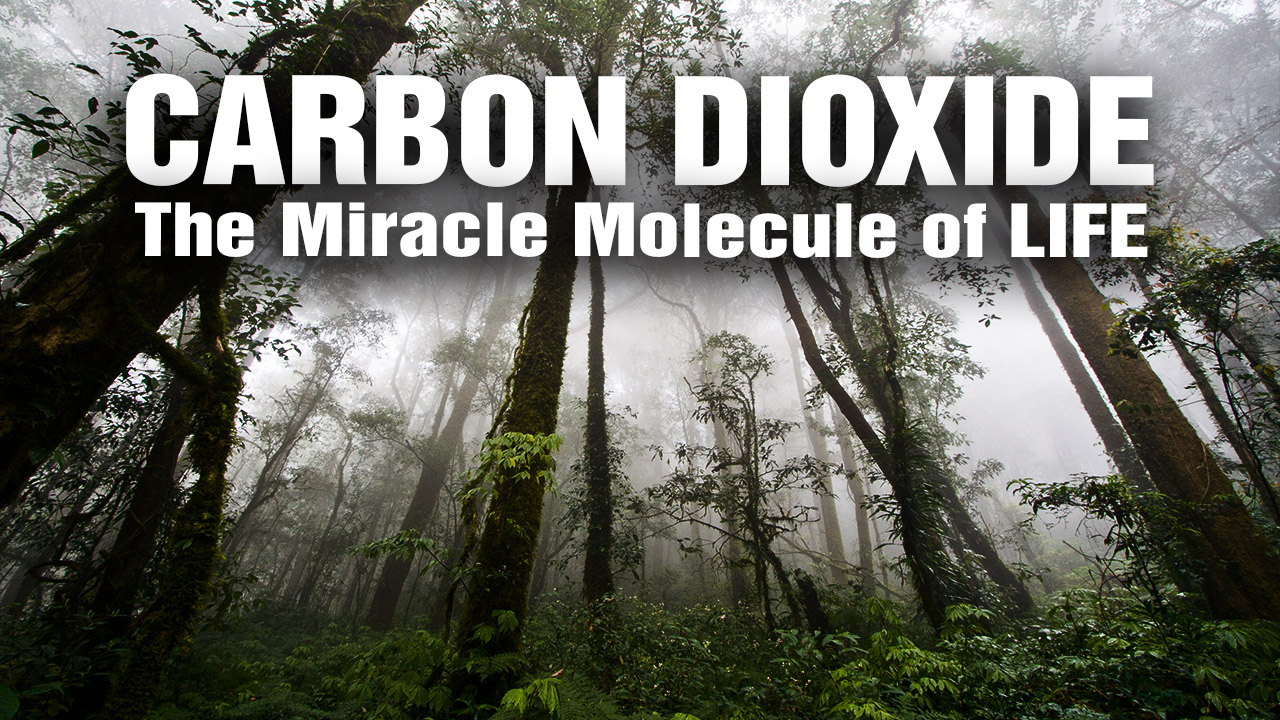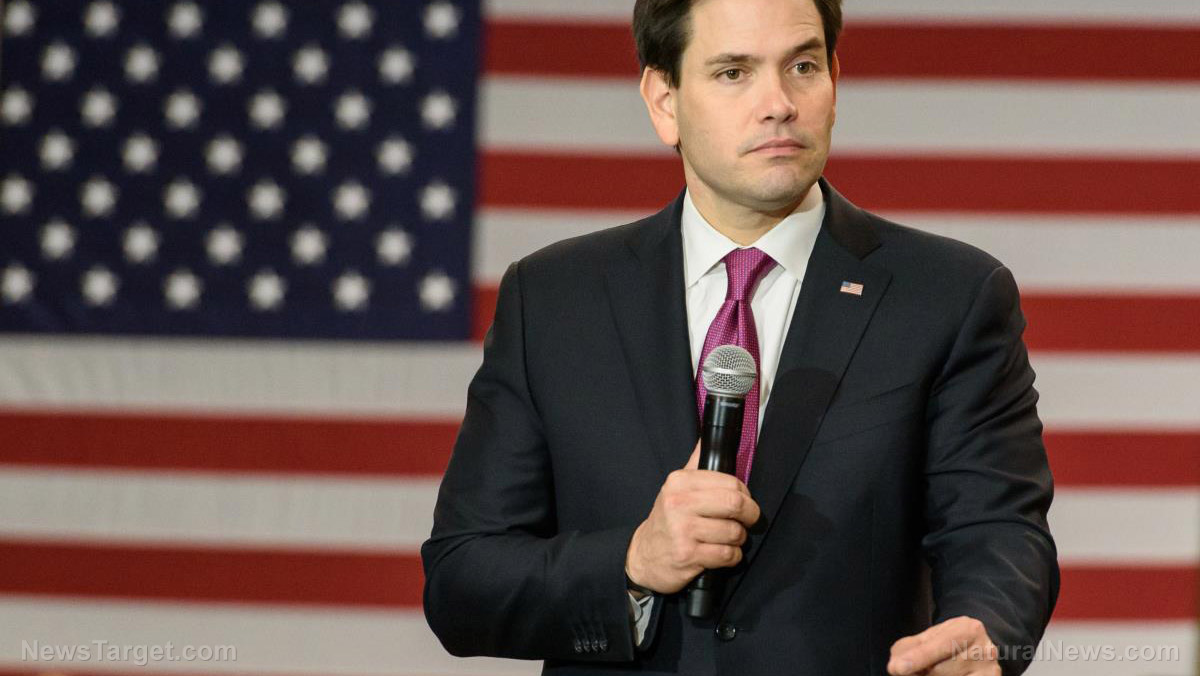 Parler
Parler Gab
Gab
- New physics study claims carbon dioxide (CO₂) cannot cause catastrophic warming or harm, instead boosting global food production.
- Net Zero policies risk global economic collapse and worsen poverty, according to MIT and Princeton climate experts.
- A separate AP report warns 1.5 C warming threshold could be breached by early 2028, contradicting skeptical conclusions.
- Climate scientists clash over Earth’s “energy imbalance,” with debates over models and policy impacts intensifying.
- President Trump’s administration seeks to overturn climate rules deemed scientifically unsound.
Lindzen and Happer: CO₂ battles science narratives
Lindzen and Happer argue that CO₂’s role as a greenhouse gas (GHG) has been grossly overstated, while its essential role in photosynthesis — and thus global food production — is ignored. “Doubling atmospheric CO₂ to 840 parts per million would boost food yields by roughly 40%, with negligible temperature effects,” they write, citing peer-reviewed research. Their paper, published June 7, asserts that current climate models rely on “unscientific evidence” and flawed regulatory frameworks, calling into question the environmental and economic costs of net-zero mandates. The authors criticize the Intergovernmental Panel on Climate Change (IPCC) for its claim that CO₂ drives over 50% of climate change. “The scientific premises of net-zero policies have been shown to be wrong,” Happer stated in the report, referencing Supreme Court rulings invalidating “arbitrary” agency regulations. Notably, the paper aligns with President Donald Trump’s June 9 executive order directing agencies to repeal climate rules lacking scientific merit.Unsettling projections
In stark contrast, an Associated Press analysis of emerging climate data warns that global CO₂ emissions — projected to hit 46 billion metric tons annually — will exceed the 1.5 C threshold within three years. Scientists led by Piers Forster of the University of Leeds now predict a 50-50 chance of breaching that limit by early 2028, up from prior estimates. “The energy imbalance accelerating in the atmosphere is worrisome,” said Zeke Hausfather of Berkeley Earth, noting Earth absorbs more heat than it emits. Critics, however, dispute model accuracy. University of Michigan climatologist Jonathan Overpeck acknowledged the report’s findings but agreed with Texas A&M’s Andrew Dessler, who called the 1.5°C target “aspirational” and cautioned against “panic.”Net-zero policies: Economic suicide or necessary mitigation?
The MIT-Princeton study warns that efforts to eliminate fossil fuels by 2050 would “disastrously” harm global economies, particularly low-income populations reliant on coal, oil and gas for energy security. Lindzen and Happer emphasize that CO₂’s benefits for agriculture outweigh speculative climate harm. “Reducing CO₂ emissions endangers food supply and public welfare,” they argue. This stance echoes critiques of the Biden administration’s “unlawful” climate rules, which the Trump White House seeks to overturn. The paper underscores the irony of geopolitical rivalries stoked by energy policies: Russia’s leverage during the Ukraine war, Saudi Arabia’s oil-price tactics and soaring energy costs in Europe.A historical crossroads
The debate hinges on competing interpretations of Earth’s climate systems. Lindzen and Happer reframe CO₂ not as an existential threat but as a “greening” agent, citing satellite data showing increasing global foliage. Meanwhile, IPCC models project escalating disasters absent drastic decarbonization. Historically, climate treaties like the 2015 Paris Agreement have struggled to align intent with impact. The U.S.’s now-defunct Clean Power Plan, and the EU’s carbon border tax, exemplify policies researchers blame for inflation, economic inequality and energy shortages.The line between science and ideology
As policymakers grapple with dueling studies and escalating geopolitical tensions, the climate debate increasingly mirrors a battle over scientific authority — and who holds the power to define it. For skeptics like Lindzen, the stakes are clear: “Net-zero rules are based on unscientific fearmongering,” he insists, advocating free markets over “climate panic.” Meanwhile, scientists like Forster urge urgent action, even as uncertainties linger. The world now faces a pivotal choice between two visions: embracing CO₂’s life-giving role while mitigating real-world climate risks, or pursuing net-zero policies that critics argue sacrifice present prosperity for uncertain future gains. With deadlines looming and emotions high, the 1.5 C debate will demand more than consensus — it will require reckoning with humanity’s checkered history of managing Earth’s delicate balance. Sources for this article include: ClimateDepot.com CO2coalition.org WHEC.comU.S. State Department advised to slash $1.3 billion in global pro-democracy grants
By Laura Harris // Share
Germany’s corporate bankruptcy surge hits decade high amid deepening crisis
By Willow Tohi // Share
Health Ranger Report: Greg Reese on Russia, global politics and humanity’s future
By Kevin Hughes // Share
U.K. unveils controversial calorie-cutting plan amid obesity crisis
By Willow Tohi // Share
Germany’s war on free speech: Woman FINED for using thumbs-up emoji
By Ramon Tomey // Share
Crypto crime crackdown: Law enforcement busts investment fraud ring in Spain
By Ramon Tomey // Share
Governments continue to obscure COVID-19 vaccine data amid rising concerns over excess deaths
By patricklewis // Share
Tech giant Microsoft backs EXTINCTION with its support of carbon capture programs
By ramontomeydw // Share
Germany to resume arms exports to Israel despite repeated ceasefire violations
By isabelle // Share










